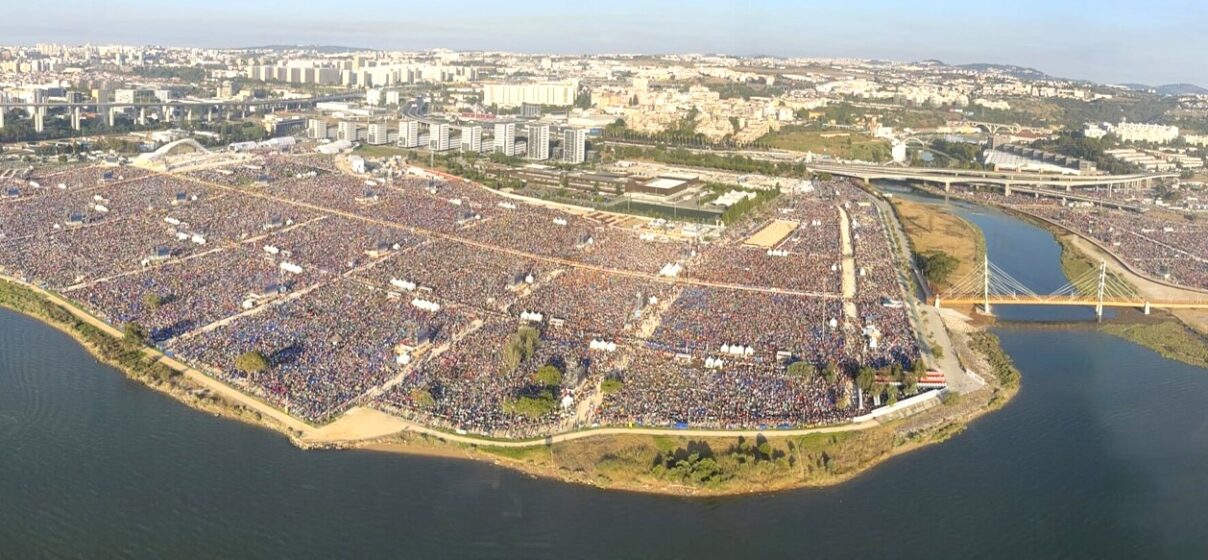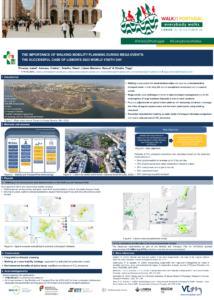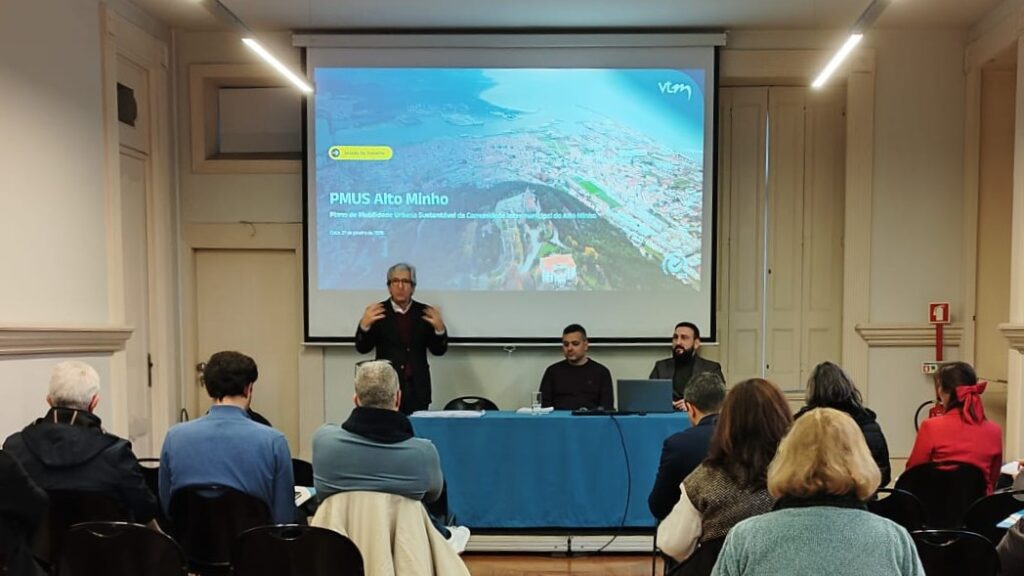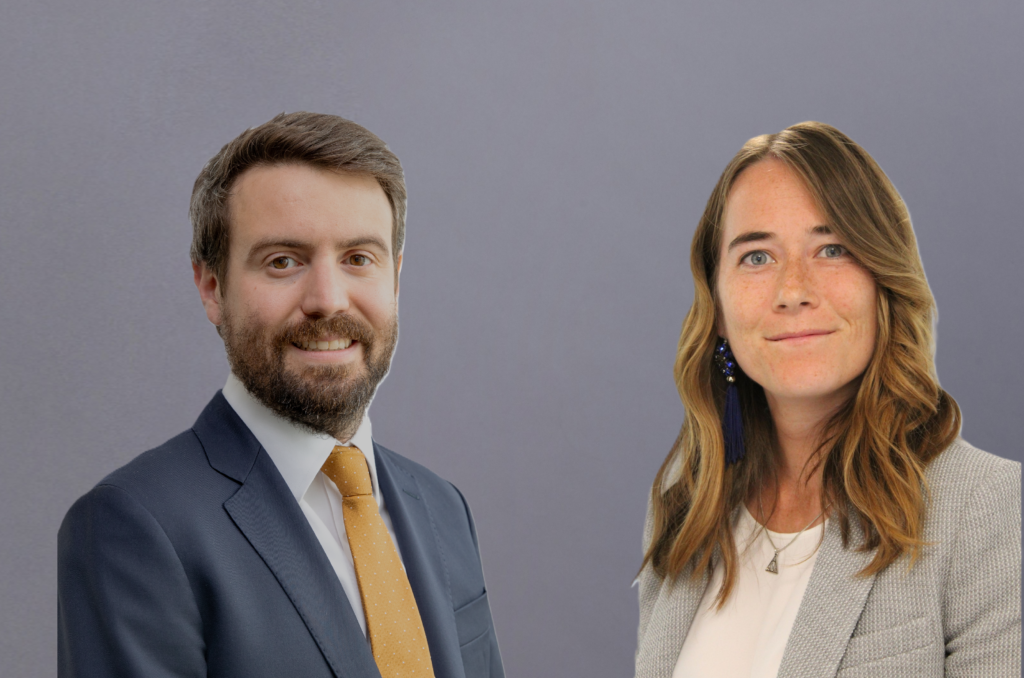Enhancing pedestrian urban mobility for mega-events: VTM at Walk21 Portugal

Between 14 and 18 October 2024, VTM participated in Walk21 Portugal, a leading international conference dedicated to the advancement of pedestrian mobility. The event constituted an opportunity to present a poster on the Mobility and Transport Plan implemented for World Youth Day (WYD) 2023, with a view to emphasising the importance of pedestrian-oriented strategies in enhancing mobility during the event.
The research employed a holistic methodology that combined qualitative and quantitative techniques. This was done for two purposes: (i) to evaluate the role of walking in the design and execution of the Mobility and Transport Plan for WYD 2023 and (ii) to estimate the potential avoidance in CO2 emissions resulting from increased pedestrian activity during the event.
The findings highlighted the pivotal importance of multimodal strategies and the prioritisation of pedestrian-friendly urban planning in enhancing mobility during mega-events. In the case of WYD 2023, the development of safe and efficient pedestrian routes from major access points to event sites, the comprehensive signposting in coordination with security authorities, and targeted restrictions on motor vehicle traffic in specific areas enabled the city to function effectively while accommodating the large-scale influx of participants.
These measures contributed to an estimated avoidance of approximately 3.2 million kilograms of CO2 emissions over the six-day event. The calculation was based on estimates of the average walking distance per participant, depending on their mode of arrival (e.g., car, bus, metro, train, or ferry), and average CO2 emissions per passenger-kilometre derived from a literature review (Ritchie, 2023).
The successful implementation of the Mobility and Transport Plan for WYD 2023 demonstrated that the prioritisation of pedestrian mobility can effectively address the complex challenges associated with the transport requirements of mega-events. VTM’s involvement in Walk21 Portugal serves to reinforce the company’s commitment to the continuous advancement of sustainable mobility strategies and the enhancement of urban accessibility and functionality.

Walking is a fundamental transport mode, primarily associated with short-distance travel. It serves as a complementary form of mobility, especially for the first and last mile. This is the case both for everyday activities and for exceptional occasions, such as large-scale events (Manelli, 2010; Gulak-Lipka & Jagielski, 2020; Balletto, 2023). The management of urban mobility during mega-events presents a significant challenge due to the confluence of substantial crowds in concentrated locations, temporary congestion, and a large proportion of non-routine journeys. These factors further contribute to difficulties in navigation, information dissemination, communication, and signage (Gulak-Lipka & Jagielski, 2020). Consequently, mega-events often necessitate strategic adaptations to typical travel patterns, including restrictions on motorised traffic in the vicinity of event venues and modifications to accommodate participants who are unfamiliar with the host city’s transport infrastructure. The complexity of these events requires a temporary or even permanent reorganisation of public spaces, which varies according to the size and duration of the event (Gulak-Lipka & Jagielski, 2020; Rocha & Xiao, 2022).
Nevertheless, the effective management of mobility during mega-events necessitates extensive collaboration between a multitude of stakeholders and a greater reliance on public transport solutions to accommodate large crowds in an efficient manner (Kassens-Noor, 2019). Furthermore, the organisation of significant events has been evidenced to facilitate local economic growth, tourism and increased media exposure (Giulianotti et al., 2015b, Taha & Allan, 2020).
The WYD 2023, held in Lisbon from 1 to 6 August 2023, constituted the largest event ever hosted in Portugal, with an estimated 1 million participants. It provides an illustrative case study of the challenges and solutions for mobility management during mega-events. VTM played a pivotal role in the formulation of the Mobility and Transport Plan for WYD 2023, adopting an integrated methodology to address the unique requirements of the event. The comprehensive Plan comprised sub-plans pertaining to transport coordination, parking management, traffic regulation, and communication strategies. The successful implementation of the Plan was contingent upon close collaboration between public and private entities, which was necessary to reorganise public transport, establish temporary transport interfaces, manage strategic parking, and delineate security perimeters.
Under these circumstances, a significant element of the Plan was the prioritisation of pedestrian mobility, which positioned walking as the primary transport mode during the event, with first and last mile much bigger than usual, as the maximisation of public transport capacity was not enough to respond to all the demand. The emphasis on walking was supported by supplementary public transport services, including hired buses and strategically located bus parking, which facilitated the movement of participants while alleviating local traffic congestion. The planning of pedestrian routes connecting drop-off points and public transport hubs to event venues was detailed, incorporating effective signage in collaboration with security forces to ensure the safety and convenience of participants.
This strategy resulted in a significant increase in walking, which not only alleviated congestion on local roadways but also contributed to a reduction in carbon emissions by decreasing reliance on motorised transport.
Latest news
All news
Collaborative mobility planning takes a major step forward in Alto Minho
This week, Ponte de Lima hosted an important milestone for sustainable mobility in the Alto Minho region, with the working sessions of the 2nd-generation Sustainable Urban Mobility Plan of Alto Minho (SUMP Alto Minho), promoted by CIM Alto Minho. At VTM, we are proud to support CIM Alto Minho in the development of a new-generation […]

VTM welcomes Oriol Riba and Alessandra Bernardi
VTM is pleased to announce the addition of two highly experienced professionals, Oriol Riba and Alessandra Bernardi, further strengthening our capabilities across infrastructure advisory and transport modelling. Oriol Riba joins VTM as a Senior Associate Director with more than fourteen years of experience in the infrastructure sector, with a strong focus on transport and additional exposure to energy […]
